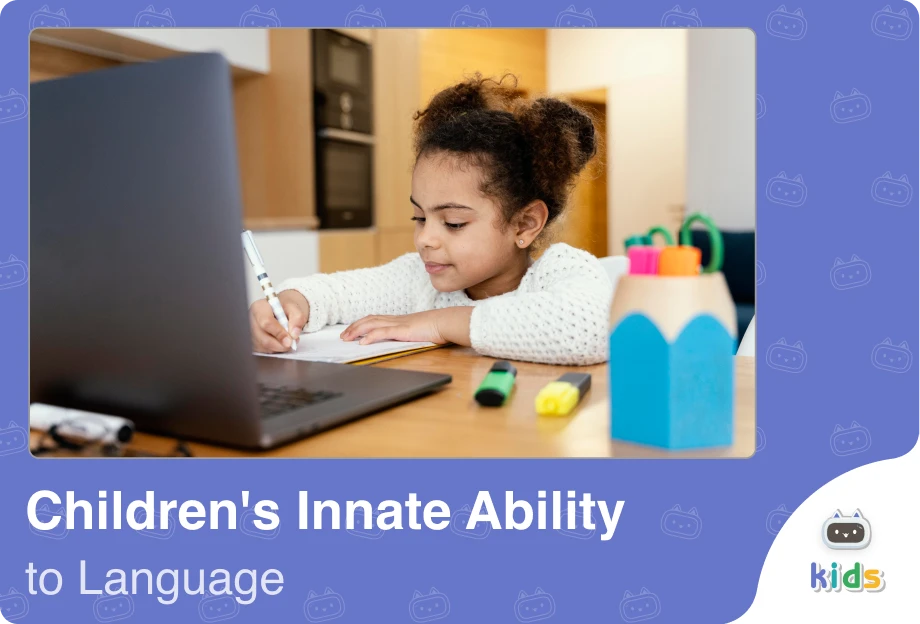In today’s interconnected and globalized world, proficiency in English has become an essential skill for academic success. English for Academic Purposes (EAP) is a specialized branch of English language teaching focusing on developing the language skills necessary for academic study in English-speaking environments. Whether you are preparing for university entrance exams, writing research papers, or participating in scholarly discussions, EAP provides the tools and techniques to excel in these areas.
What is English for Academic Purposes?
English for Academic Purposes (EAP) is designed to help non-native English speakers succeed in academic environments where English is the medium of instruction. Here’s a detailed overview of EAP:
Key Objectives of EAP
Academic Writing: Teaching students how to write essays, research papers, reports, and theses that adhere to academic standards and conventions.
Academic Reading: Helping students develop strategies for understanding and analyzing complex academic texts, including books, journal articles, and research papers.
Listening Skills: Training students to effectively listen to and comprehend lectures, presentations, and academic discussions.
Speaking Skills: Preparing students to participate in seminars, discussions, and oral presentations, including the ability to articulate ideas clearly and respond to questions.
Research Skills: Guiding students in conducting academic research, using libraries and online resources, and correctly citing sources.
Who Benefits from EAP?
International Students: Non-native English speakers studying at universities in English-speaking countries.
Researchers: Academics who need to publish their research in English.
Professionals: Individuals who require academic English skills for their careers, such as attending conferences or writing research reports.
How EAP Differs from General English Courses
Specialization: EAP focuses on academic contexts, whereas general English courses cover everyday communication.
Skill Development: EAP emphasizes critical thinking, advanced writing techniques, and the ability to understand and produce academic texts.
Target Audience: EAP is specifically designed for students and professionals who need English for academic success.
Why is EAP important?
EAP is crucial for academic success in English-speaking environments. It equips students with the necessary language and study skills to perform effectively in their studies, engage with academic content, and contribute to scholarly discussions.
Which Language is Academic?
Academic language refers to the style of language used in educational and scholarly settings. It is characterized by specific features that differentiate it from everyday conversational language. Here are some key aspects that make a language academic:
Formal Tone
Academic language is more formal than conversational language.
It avoids slang, colloquialisms, and contractions.
Complex Sentence Structures
Sentences in academic writing often have more complex structures, including subordinate clauses and passive voice. This complexity helps convey precise and nuanced information.
Specialized Vocabulary
Academic language uses specialized and technical vocabulary specific to different fields of study. It includes discipline-specific terms and jargon that are not commonly used in everyday language.
Precision and Clarity
Precision is critical in academic language to convey exact meanings and avoid ambiguity. Clarity ensures that the information is understandable and logically organized.
Objective Tone
Academic writing aims to be objective and unbiased. Personal opinions and emotional language are minimized, focusing instead on evidence and logical reasoning.
Evidence-Based
Claims and arguments in academic language are supported by evidence from credible sources. Proper citation and referencing of sources are essential to academic integrity.
Third-Person Perspective
Academic writing often employs a third-person perspective to maintain objectivity and formality. First-person pronouns (I, we) and second-person pronouns (you) are used sparingly.
Discourse Markers
Words and phrases that organize and connect ideas (e.g., furthermore, however, consequently) are commonly used in academic language to guide the reader through the argument.
Academic language can be used in different contexts such as research papers and journal articles, textbooks and academic books, lectures and academic presentations, dissertations and theses and scholarly discussions and conferences.
Understanding and mastering academic language is essential for success in higher education and scholarly activities. It enables clear and effective communication of complex ideas and contributes to the advancement of knowledge in various fields.
Examples of Academic Language vs. Conversational Language
Conversational: “You can see that pollution is bad because it hurts people and animals.”
Academic: “It is evident that pollution has detrimental effects on both human health and wildlife.”
Here is other example:
Conversational: “I think the book was really good and had lots of useful info.”
Academic: “The text provides a comprehensive analysis and contains a wealth of pertinent information.”
How Can Academic Language Benefit Students?
Academic language is crucial for students as it significantly enhances their ability to succeed in educational settings. Here are several ways in which mastering academic language benefits students:
Improved Academic Performance
Enhanced Understanding: Proficiency in academic language helps students better understand textbooks, research articles, and lecture materials, leading to improved comprehension and retention of information.
Effective Writing: Students can produce higher-quality essays, reports, and research papers that meet academic standards, resulting in better grades.
Critical Thinking and Analysis
In-depth Analysis: Academic language encourages precise and logical expression, which fosters critical thinking and the ability to analyze complex concepts and arguments.
Evidence-Based Reasoning: It helps students learn to support their arguments with evidence, enhancing their analytical skills and ability to construct well-founded arguments.
Enhanced Communication Skills
Clear Expression: Mastering academic language allows students to articulate their ideas clearly and coherently in both written and spoken forms.
Effective Presentations: It aids in delivering clear and professional presentations, essential for seminars, conferences, and classroom discussions.
Better Research Skills
Access to Scholarly Resources: Proficiency in academic language enables students to navigate and comprehend scholarly articles, journals, and other academic resources effectively.
Proper Citation: Understanding academic conventions helps students cite sources correctly, avoiding plagiarism and maintaining academic integrity.
Preparation for Higher Education and Professional Careers
Graduate Studies: Academic language proficiency is crucial for success in graduate programs, where advanced reading, writing, and research skills are required.
Professional Communication: Many professions, particularly in academia, research, and technical fields, require strong academic language skills for writing reports, grant proposals, and professional communication.
Increased Confidence and Independence
Self-Sufficiency: Mastery of academic language empowers students to engage independently with academic materials, reducing reliance on external help.
Confidence in Participation: It boosts students’ confidence in participating in academic discussions, asking questions, and expressing their ideas in class.
Global Competence
International Studies: Academic language proficiency is essential for students studying abroad or engaging in international research collaborations.
Cross-Cultural Communication: It equips students with the skills needed to communicate effectively in diverse academic and professional settings worldwide.
Strategies for Developing Academic Language Skills/>
Extensive Reading: Reading a variety of academic texts, including textbooks, journal articles, and research papers, helps familiarize students with academic vocabulary and structures.
Writing Practice: Regular practice in writing essays, reports, and research papers, along with feedback from teachers or peers, enhances writing skills.
Active Participation: Engaging in class discussions, seminars, and academic presentations helps improve speaking and listening skills.
Study Groups: Collaborating with peers in study groups provides opportunities to practice and refine academic language skills.
Mastering academic language is a foundational skill that opens doors to academic achievement and professional success, equipping students with the tools they need to excel in their educational pursuits and beyond.
To improve your English learning journey with diversity and excitement, join EnglishCentral today! EnglishCentral offers various engaging resources and features specifically designed to enhance your Academic English skills. Additionally, you can overcome your fear of academic discussions by participating in group lessons. You can interact with students from all around the world and practice Academic English in a supportive and collaborative environment.
EnglishCentral‘s comprehensive interactive video library is a valuable resource for improving your Academic English. Access over 30,000 interactive videos tailored to various English proficiency levels and explore endless topics of interest to keep your learning engaging and diverse. Develop your Academic English skills through watching, learning, and engaging with the videos.
By using EnglishCentral‘s 1-on-1 live classes, group lessons, comprehensive interactive video library, and study tools, you can approach Academic English learning in a disciplined and effective manner. Enjoy a diverse range of learning experiences and embark on a dynamic journey towards mastering Academic English!
Frequently Asked Questions About English for Academic Purposes
What is English for Academic Purposes (EAP)?
EAP is a branch of English language teaching that focuses on helping students develop the language skills necessary for academic study at colleges and universities. It encompasses a range of skills including reading academic texts, writing essays and research papers, listening to lectures, and participating in seminars and discussions.
Who needs EAP?
EAP is primarily designed for non-native English speakers who plan to study at English-speaking institutions or need to use English in an academic context. This includes international students, researchers, and academics who must publish their work in English.
How does EAP differ from general English courses?
EAP is more specialized than general English courses. While general English courses focus on everyday communication skills, EAP courses are tailored to meet the specific needs of academic contexts, emphasizing critical thinking, academic vocabulary, and the conventions of academic discourse.
How important are listening and speaking skills in EAP?
Listening and speaking are crucial for academic success. Effective listening skills help you understand lectures and participate in discussions, while strong speaking skills are necessary for presenting research, asking questions, and engaging in academic dialogues.
Would you like to put what you have learned into practice? You can access everything you need to learn English on a single platform! With 25-minute one-on-one live English lessons, 40-minute group lessons, more than 30,000 interactive videos, vocabulary learning tools, AI-supported tutor MiMi, quizzes, and interactive activities, EnglishCentral offers its users a personalized and quality education plan at an affordable price. How about registering for EnglishCentral now and starting to learn English?











